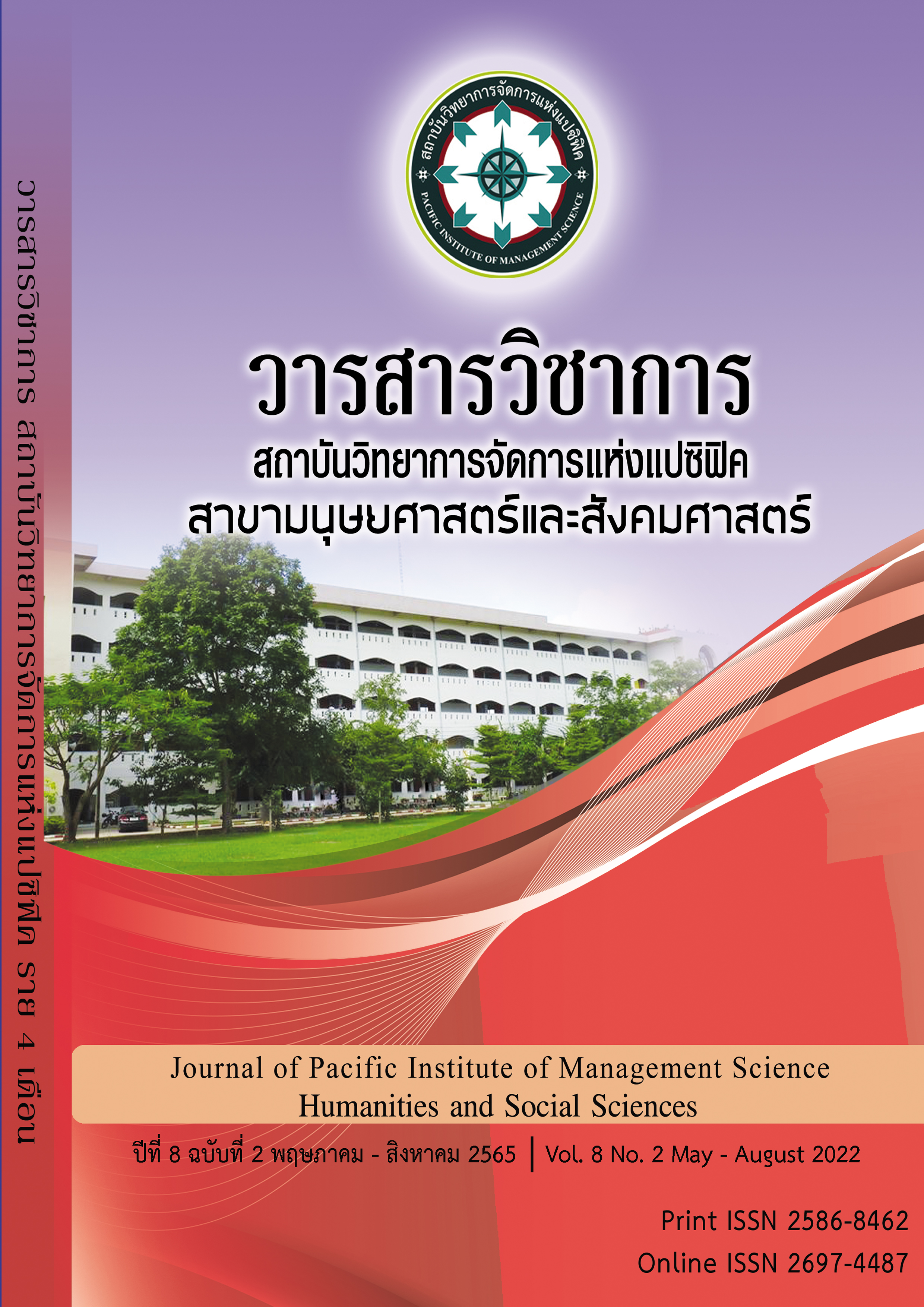A Study of Situational Leadership Condition of School Administrators in Phitsanulok Vocational Education under the Office of Vocational Education Commission
Keywords:
leadership, Administrators, EducationAbstract
The purposes of this study were 1) to study the levels of situational leadership condition of school administrators in Phitsanulok Vocational Education under the Office of Vocational Education Commission. A sample of this research was 210 school administrators and teachers were included as a sample. Research instruments were questionnaire with rating scales and structural interview guide. The data were analyzed by using mean and standard deviation. and 2) to study the appropriate guidedances of situational leadership condition of school administrators in Phitsanulok Vocational Commission under the Office of Vocational Education Commission. Informants consists of the qualified people who got the master’s degree in education administration and have worked experience in school administration in ten years at least. Also, seven informants were selected by purposive sampling with interviewing.
The results of this study were:
1. The levels of situational leadership condition of school administrators in Phitsanulok Vocational Education under the Office of Vocational Education Commission were overall at a high level in all aspects. The results in each aspect found that selling is the highest average, followed by participating, and delegating is the lowest average.
2. The study the most appropriate guidedances of situational leadership condition of school administrators in Phitsanulok Vocational Commission under the Office of Vocational Education Commission were found that:
1) In telling – should define the work duration to be accomplished clearly which must be defined the scope of work, controlled, supervised, and monitoring closely.
2) In selling – should make an opportunity to the subordinators to make an opinions and inquire, and be an advisor to give an advice and give an opinion to the success of goals.
3) In participating – should join in thinking, doing, and making a decision to the subordinators in participating in making an opinion to follow the result of work with observing and inquiring.
4) In delegating – should assign and define the works clearly which give an opportunity for the subordinators to express the knowledge’s and capability efficiently.
References
สำนักงานคณะกรรมการพัฒนาการเศรษฐกิจและสังคมแห่งชาติ. (2555). แผนพัฒนาเศรษฐกิจและสังคมแห่งชาติ ฉบับที่ 11. สำนักงานคณะกรรมการพัฒนาการเศรษฐกิจและสังคมแห่งชาติ. กรุงเทพฯ.
ณิรดา เวชญาลักษณ์. (2560). ภาวะผู้นำทางการบริหาร. (พิมพ์ครั้งที่ 1). กรุงเทพฯ : สำนักพิมพ์แห่งจุฬาลงกรณ์มหาวิทยาลัย.
ณปภัช อำพวลิน. (2557). การศึกษาความสัมพันธ์ระหว่างแบบภาวะผู้นำของผู้บริหารสถานศึกษากับแรงจูงใจในการทำงานของครู สังกัดสำนักงานเขตพื้นที่การศึกษาประถมศึกษาพิษณุโลก เขต 1. วิทยานิพนธ์ปริญญาครุศาสตรมหาบัณฑิต (สาขาวิชาการบริหารการศึกษา) มหาวิทยาลัยราชภัฎพิบูลสงคราม.
วิโรจน์ สารรัตนะ. (2548). ผู้บริหารโรงเรียน : สามมิติการพัฒนาวิชาชีพสู่ความเป็นผู้บริหารที่มีประสิทธิผล. (พิมพ์ครั้งที่ 2). กรุงเทพฯ : ทิพย์วิสุทธิ์.
สถาบันการอาชีวศึกษาภาคเหนือ 3. (2563). รายงานสรุปจำนวนบุคลากรของสำนักงานคณะกรรมการการอาชีวศึกษา เพื่อประกอบการจัดสรรงบประมาณประจำปี 2563 งวด 2. ข้อมูล ณ วันที่ 29 พ.ค. 63.
Hersey, P.& Blanchard, H.K. (1985). Management of Organizational Behavior: Utilizing Human Resources. (6th ed.),
Englewood Cliffs, NJ : Prentice-Hall.. (1993). Management of Organizational Behavior. 6th ed. New Jersey: A
Simon & Schuster Company. (2001). Management of Organizational Behavior: Utilizing Human Resources. (7th ed.), Englewood Cliffs, NJ : Prentice-Hall.
House, R. J., & Mitchell, T. R. (1974). Path-goal theory of leadership. Journal of Contemporary Business, 25, 81-87.
Downloads
Published
Issue
Section
License
Copyright (c) 2022 Pacific Institute of Management Science

This work is licensed under a Creative Commons Attribution-NonCommercial-NoDerivatives 4.0 International License.
บทความที่ได้รับการตีพิมพ์เป็นลิขสิทธิ์ของ สถาบันวิทยาการจัดการแห่งแปซิฟิค
ข้อความที่ปรากฏในบทความแต่ละเรื่องในวารสารวิชาการเล่มนี้เป็นความคิดเห็นส่วนตัวของผู้เขียนแต่ละท่านไม่เกี่ยวข้องกับสถาบันวิทยาการจัดการแห่งแปซิฟิค และคณาจารย์ท่านอื่นๆในสถาบันฯ แต่อย่างใด ความรับผิดชอบองค์ประกอบทั้งหมดของบทความแต่ละเรื่องเป็นของผู้เขียนแต่ละท่าน หากมีความผิดพลาดใดๆ ผู้เขียนแต่ละท่านจะรับผิดชอบบทความของตนเองแต่ผู้เดียว







